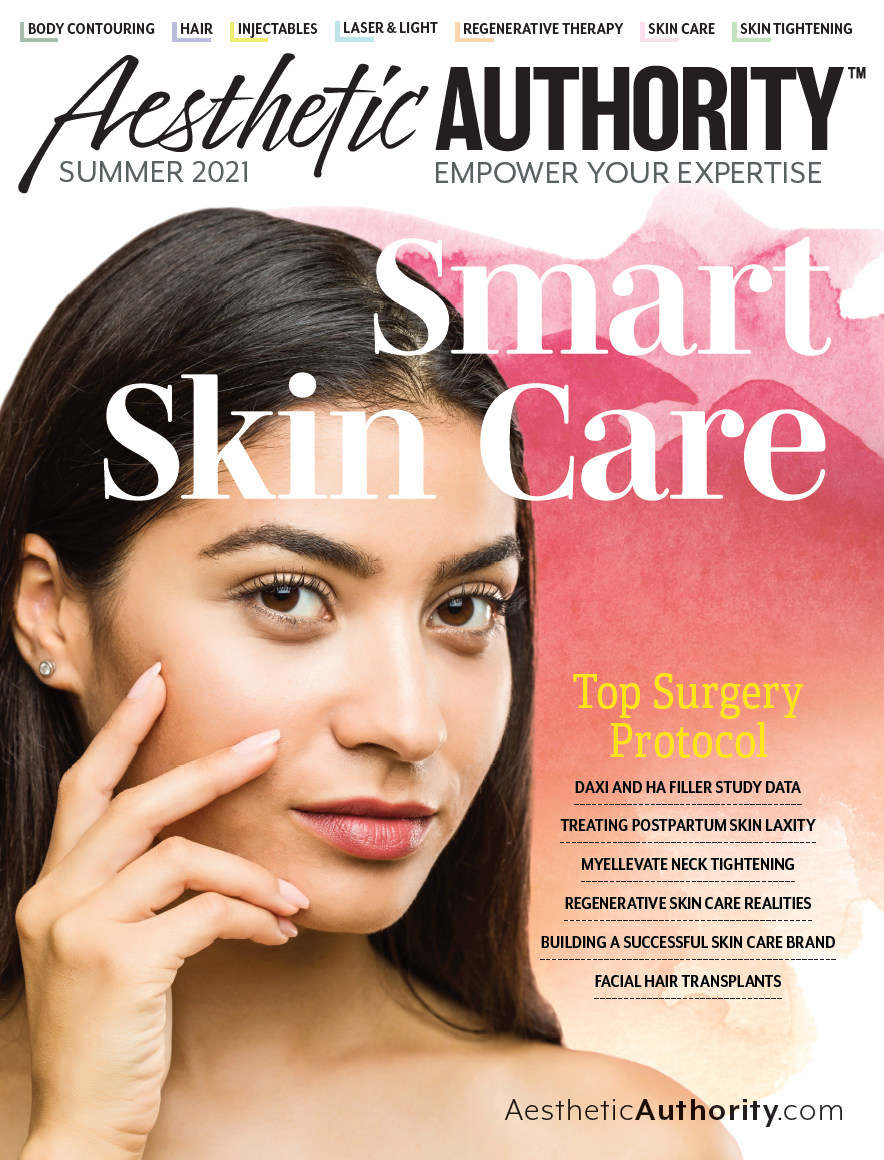- Case-Based Roundtable
- General Dermatology
- Eczema
- Chronic Hand Eczema
- Alopecia
- Aesthetics
- Vitiligo
- COVID-19
- Actinic Keratosis
- Precision Medicine and Biologics
- Rare Disease
- Wound Care
- Rosacea
- Psoriasis
- Psoriatic Arthritis
- Atopic Dermatitis
- Melasma
- NP and PA
- Skin Cancer
- Hidradenitis Suppurativa
- Drug Watch
- Pigmentary Disorders
- Acne
- Pediatric Dermatology
- Practice Management
- Prurigo Nodularis
- Buy-and-Bill
Publication
Article
Aesthetic Authority
Paul Nassif, MD: Building a Successful Skin Care Brand
Author(s):
Creating a skin care line involves dedication, product testing, clinical trials, marketing, sales, and yes, a lot of money.
Beverly Hills facial plastic surgeon Paul Nassif, MD, FACS, of NassifMD Plastic Surgery in California, knows how to create a successful brand. His image alone creates awareness with anyone who has tuned into E! Entertainment’s Dr. 90210 or Botched.
Among his many claims to fame, Nassif developed and markets NassifMD Dermaceuticals. He shared strategies for building a successful skin care line with colleagues during the April 17 International Society of Aesthetic Plastic Surgery (ISAPS) Business School.
Launching a skin care line is not easy, according to Nassif.
“This is more of a long-term investment, and really if you are going to do this you need dedication and, of course, a lot of money,” he says.
Aesthetic physicians and surgeons have different reasons for creating proprietary skin care lines.
“You have to think about, ‘What is my endgame? Am I doing this because it is a passion project of mine? Am I doing this as a source of passive income?’” he says. “I did this for my patients because when you do surgery, what happens to [the quality of the] skin? Nothing. If you have surgery plus great skin care…it makes your surgery look better.”
Regardless of the reason, says Nassif, the goal of creating a skin care line should be to develop great products because repeat business is the key to long-term success.
“You can always get someone to buy the product, but the question is, are they going to keep using it? That is why the product has to be fantastic,” he says.
Product Testing and Clinical Studies
Science and testing should be the foundation of any physician-developed skin care brand. That includes developing thoughtful formulations, as well as formal and informal testing and feedback.
“I chose to individually formulate each product to ensure control of ingredients, potency, and efficacy, and to tailor each [product] to my patients’ needs and input,” he says.
Proper product testing is a time-consuming endeavor, but necessary. For his line, Nassif worked with chemists to achieve efficacy and potency for each product, whether it was designed for the face, neck, under eyes, nose, or other areas.
“There are probably 7 to 8 different tests that you have to do with your chemist,” Nassif explains.
Nassif’s skin care products went through laboratory testing, consumer perception studies, before and after studies, hydration studies, skin pathology testing, and Visia (Skin Analysis System; Canfield Scientific) studies. He also funded clinical trials that incorporated side-by-side visual comparisons. Additionally, he received qualitative and quantitative feedback from friends, colleagues, patients, and staff.
During the ISAPS Business School presentation, Nassif shared images from a Visia study that had 30 participants. In the study, patients wearing fluorescent makeup cleansed their face using soap and water on one side of the face and his NassifMD Detox Pads on the other to remove dirt, makeup, and residue.
“[My detox pads were] 108% more effective than soap and water,” he says.
Although companies do the actual testing for providers such as Nassif, it’s the providers who foot the bill, he says. He also commissioned a perception study in which 32 participants wrote down what they thought about products.
Providers should highlight before and after images for each product, he says, noting that consumers look to these transformations when deciding what to buy. In his presentation, Nassif showed before and after images of his Deco-Lift and Peri-Orbital Complex products.
“What I focus on here is the luminosity and glow. I look at the color and the crow’s feet and also…at the lifting ability,” he says. “This is from a key ingredient called Vin-upLift, that gives immediate temporary hydration and lifting.”
Formulating products with key ingredients that may not be widely available but are backed up by science to suggest they work is important for product differentiation. Nassif describes the Vin-upLift ingredient as “a unique tightening ingredient that is derived from Swiss ice wine,” on his website NassifMDskincare.com.
“Your ingredients have to be excellent,” he says. “You have to have the science behind the different products.”
Marketing and Sales
Nassif uses many avenues to reach his target audience for skin care products, including TV shopping and e-commerce. His product line is featured on HSN in the United States and international shopping channels such asTVSN in Australia, QVC UK, and TSC in Canada.
As for e-commerce, Nassif markets the brand on the NassifMDskincare.com website and also sells the line on additional websites. The brand has its own Amazon.com consumer page.
The skin care line has a large social media presence, with advertisements on popular platforms and lifestyle websites, such as PopSugar. Social media marketing is a conduit to reach specific demographic groups, he says, adding that it is also important to use online influencers and their high-profile engagement.
Brick and mortar is a separate conversation, according to Nassif, who only briefly touched on having product conversations with Ulta Beauty Inc and Sephora, in his ISAPS presentation. On-air skin care sales, coupled with a robust online and social media presence, helps to educate buyers, develop brand awareness, fuel sales, and build an international viewership, he says.
Of course, Nassif’s practice also generates product sales. His practice integrates skin care into surgical treatments, and the skin care line also supplements his medical spa and aesthetic treatments.






